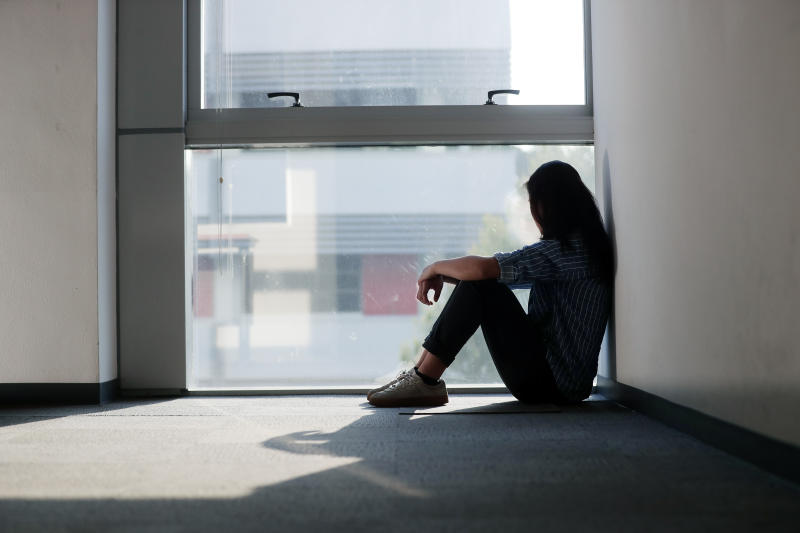More needed help during Covid-19 pandemic, say mental health experts
Sign up now: Get ST's newsletters delivered to your inbox

More clients were dealing with depression, anxiety and suicidal thoughts amid the pandemic.
PHOTO: ST FILE
SINGAPORE - When the pandemic hit last year, counsellor Sharlene Teo, 37, who has a two-year-old son, found herself struggling to balance her motherhood duties with work commitments.
Her work at the community mental health department at Fei Yue Community Services became more stressful, as clients needed more frequent sessions.
She said: "The pandemic was not easy for me as well. I'm just the same as my clients, or any other human being going through this."
She took frequent self-care breaks, when she would listen to relaxing music, read a book, or take a walk in the park.
Mental health professionals here said they have had to attend to more cases over the past year. More clients were dealing with depression, anxiety and suicidal thoughts amid the pandemic.
Mr Sam Roberts, centre director of Olive Branch Psychology and Counselling Services, said the organisation saw a spike in July last year, with cases increasing progressively till now.
The Singapore Counselling Centre also saw a 40 per cent increase in the number of clients from 2019 to 2020, said its chief well-being officer, Mr John Shepherd Lim.
Associate Professor John Wong, a senior consultant psychiatrist at the National University Hospital, said that stressors such as the derailment of school, work and social routines and financial woes, created a sense of hopelessness.
Prof Wong added: "These, when placed on an vulnerable individual already under strain, could tip one over to become suicidal."
Dr Jared Ng, a consultant at the Institute of Mental Health, said while suicidal acts are often impulsive, and crises leading to suicidal tendencies are often fleeting, what is most important is support from family and friends.
Mr Joseph Rajagopal, senior counsellor at Singapore Counselling Centre, said: "We need to be more receptive to receiving help and seeking help for our loved ones, instead of being hindered by the belief that we are going to be labelled as mental patients."
Mr Joseph said that as the first line of support for suicidal people, family members must go the extra mile and talk to them about their struggles.
Ms Teo said people should be careful not to minimise the experiences of those vulnerable to suicide.
She said: "Even if you cannot walk that journey for them, you can walk alongside them."
She added that suicide was not a problem unique to any age group.
The elderly who live alone, caregivers who had to care for young children, and students who were troubled by conflict at home were all vulnerable, said Ms Teo.
Mr Jim Bek, 58, a counsellor working with youth, once saw someone jumping off a building and that motivated him to work harder for his clients.
He said: "Suicide knows no boundary of age, ethnicity, belief, or timeline. I don't want them to become another statistic on the chart."
Helplines
Samaritans of Singapore: 1800 221-4444 (24 hours)
Institute of Mental Health: 6389-2222 (24 hours)
Singapore Association for Mental Health: 1800 283-7019 (Mon to Fri, 9am to 6pm)
TOUCHline: 1800 377-2252 (Mon to Fri, 9am to 6pm)
Brahm Centre Assistline: 6655-0000 (Mon to Fri, 9am to 6pm)
After hours: 8823-0000 (WhatsApp available)


